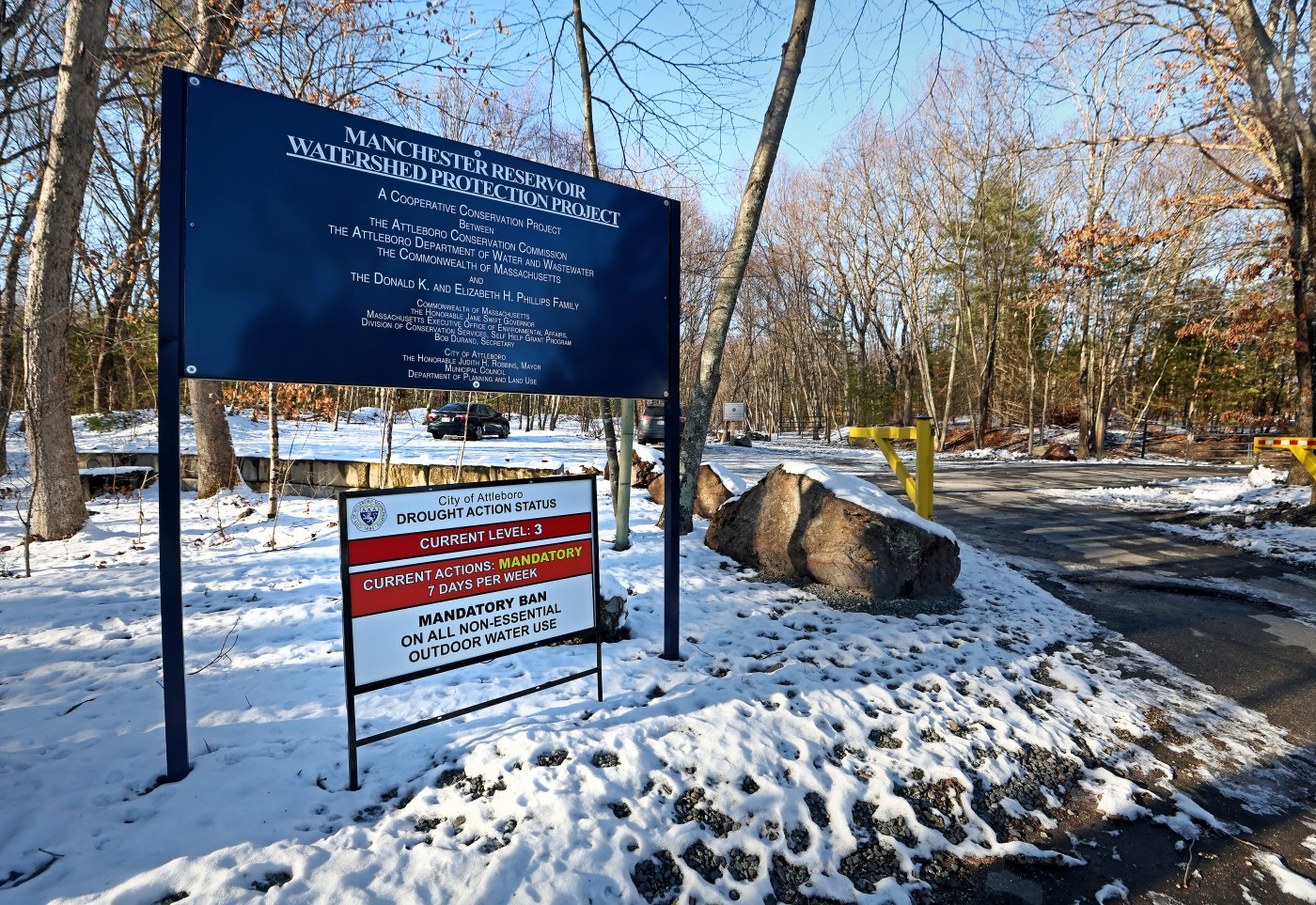
Attleboro water superintendent resigns after ‘unacceptable water loss’
Attleboro’s water superintendent has resigned after the mayor blamed “oversight and communication issues” for a water supply emergency that is set to stretch well into the new year.
Kourtney Allen resigned on Monday after Mayor Catheen DeSimone wrote in a letter to residents last week that human mistakes, not just the drought and other natural factors, contributed to an “unplanned, avoidable, and totally unacceptable water loss.”
Allen’s departure has left the city scrambling to find a new superintendent while it contracts with a consultant to work with the assistant superintendent and oversee several large water department projects, DeSimone told residents Monday afternoon.
“Moving forward also means better oversight of internal operations, evaluating and improving department practices and procedures, and establishing clear and open channels of communication between department management and staff members,” the mayor wrote in a letter.
“At the same time,” she added, “we must continue our efforts to increase our water supply storage capacity, add groundwater wells, and better enforce the annual outdoor water use restrictions. Most important, we will learn, change, and do better to ensure that we don’t find ourselves in this situation again.”
Attleboro, a city of roughly 46,600 residents bordering Rhode Island, has been in a water supply emergency since Nov. 19, when the state Department of Environmental Protection declared it.
The mandatory ban on all non-essential outdoor water use will be in effect until mid-May, while city officials urge the adoption of indoor water conservation measures.
In a three-page detailed explanation of the dire situation, DeSimone wrote that she heard the rumor of a “significant water loss” in early September. Water officials informed her that a “malfunction or other specific event” did not trigger the shortage.
Earlier this month, after meeting with water officials, DeSimone said it became clear that management issues triggered the predicament.
Attleboro supplies drinking water to over 40,000 people in the city and neighboring North Attleboro and Mansfield.
Water processed in Attleboro comes from the larger Manchester Reservoir and much smaller Orr’s Pond, which has dealt with manganese levels that exceed state standards.
To reduce those levels, reservoir water was drawn into the pond via an underground aqueduct, “blending” with the pond water, DeSimone explained. But the process “resulted in more than expected water loss,” she added.
Blending began in early June with a reservoir valve placed automatically, with gravity and pressure controlling the water flow. Seven weeks later, the water level in the reservoir dropped a “little more than 7 feet, or double what would ordinarily be expected,” DeSimone said.
Water officials did not address the declining water level until July 24 when they changed the valve from automatic to “in hand,” with it being “intentionally set to a specific opening,” DeSimone said. That slowed water loss “dramatically.”
The details emerged during a conversation with water officials on Dec. 5, DeSimone said. It also came to light that there were “some internal concerns and conversations between Water Dept. staff about the valve opening up to 48% and the amount of water flowing down” from the reservoir and into the pond.
The mayor emphasized how she “asked several times for an explanation as to how the valve issue went unaddressed for several weeks.”
“No satisfying explanation was provided,” DeSimone wrote to residents on Monday. “It was very apparent, however, that although the water loss was unintentional, the problem occurred and lingered because of a lack of oversight and communication.”
Relying on ponds, reservoirs and other bodies for its water, rainfall is Attleboro’s only form of replenishment which proved to be hard to come by in the latter half of this year.
“Although the drought was going to diminish our water supply in any event,” the mayor wrote, “the water that was lost in June and July could have helped us mitigate some of the drought’s impact.”
In an email to ABC6 News in Providence last month, DeSimone called the rumors “baseless” as residents took to social media with claims last month that the water department accidentally left a valve open, allegedly costing the city 500 million gallons of water.
Residents reacted to the water superintendent’s resignation and DeSimone’s detailed explanation on social media. One said the mayor’s trust in the water department was “misplaced and abused.”
“While I appreciate the details, I’m absolutely appalled that the problem was not addressed when it was noticed by employees (the very day the valve was opened),” the resident wrote, “especially considering we were already experiencing drought conditions.”
“How hard could it have been to send a quick email to have it checked out?” they added. “The negligence makes me sick.”
Low water level at the Attleboro resevoir. (Nancy Lane/Boston Herald)
Low water level at the Attleboro resevoir. (Nancy Lane/Boston Herald)


